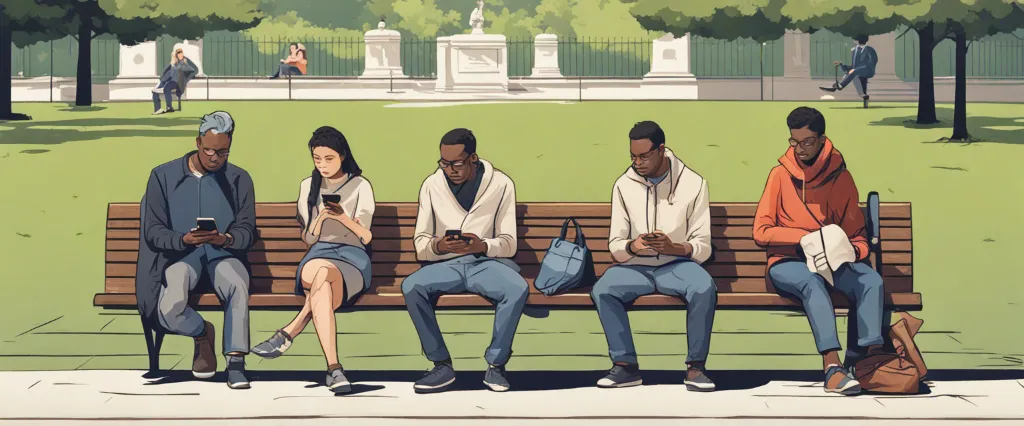
As technology continues to reshape our lives and redefine the way we interact with one another, examining its impact has become more critical than ever. In this context, there is no one better suited to shed light on the topic of human-technology interactions than Sherry Turkle. As a renowned psychologist, author, and professor at the Massachusetts Institute of Technology (MIT), Turkle has dedicated her career to understanding how our growing dependence on technology affects our relationships, emotions, and overall well-being. In this interview, we delve into her fascinating insights, seeking to uncover the hidden complexities and untapped potential in our ever-evolving relationship with technology.
Sherry Turkle is a prominent American psychologist, professor, and author known for her research and writings on the effects of technology on human behavior and society. With a career spanning over four decades, Turkle has been at the forefront of analyzing and critiquing the impact of technology on our relationships, personal experiences, and self-identity.
Born on June 18, 1948, in New York City, Turkle obtained her Bachelor’s degree in Social Studies and Psychology from Radcliffe College in 1969. She later completed her Ph.D. in Sociology and Personality Psychology at Harvard University in 1976. Currently, Turkle serves as the Abby Rockefeller Mauzé Professor of the Social Studies of Science and Technology at the Massachusetts Institute of Technology (MIT), where she is also the founder and director of the MIT Initiative on Technology and Self.
Throughout her career, Turkle has conducted extensive research and written numerous influential books, including “The Second Self: Computers and the Human Spirit” (1984), “Life on the Screen: Identity in the Age of the Internet” (1995), and “Alone Together: Why We Expect More from Technology and Less from Each Other” (2011). Her work explores the intersection between technology and psychology, examining how our interactions with digital devices and online platforms impact our emotions, relationships, and sense of self.
Turkle’s research has garnered both praise and controversy. She has been recognized for her nuanced and thought-provoking insights into the psychological implications of technology and the importance of finding a balance between our online and offline lives. However, she has also faced criticism for allegedly being overly pessimistic about the effects of technology, with some arguing that she underestimates the potential benefits and positive aspects of digital connectivity.
Nonetheless, Sherry Turkle’s work has undeniably contributed to the ongoing dialogue surrounding the consequences of technology’s ubiquity in our lives. Through her research, teachings, and public appearances, she continues to encourage critical thinking and reflection on our relationship with technology, urging us all to consider the profound ways it shapes our sense of self and interpersonal connections.
10 Thought-Provoking Questions with Sherry Turkle
1. Can you provide ten Reclaiming Conversation by Sherry Turkle quotes to our readers?
Reclaiming Conversation quotes as follows:
a) “We think constant connection will make us feel less lonely, but we are at risk of developing a fear of being alone.”
b) “Technology doesn’t just change what we do, it changes who we are.”
c) “Technology makes us forget what we know about life.”
d) “We are sacrificing conversation for mere connection.”
e) “The pullback from conversation has the possibility to stunt the development of the capacity for empathy.”
f) “We are tempted to think that the new technologies substitute for what they disrupt.”
g) “We mistake connection for genuine conversation.”
h) “In conversation, things work best in some of their full complexity.”
i) “Conversation is the most human and humanizing thing that we do.”
j) “The more time we spend looking at our screens, the less we experience states of nostalgia, anticipation, and tenderness – the emotional building blocks of empathy.”
2.What motivated you to write “Reclaiming Conversation”? Can you share the inspiration behind the book and explain why you believe it’s essential for individuals to reexamine the role of conversation and connection in today’s digital age?
I wrote “Reclaiming Conversation” because I believe that our increasingly digitalized world has led us to prioritize technology over meaningful face-to-face conversation. As a social psychologist, I have studied how technology affects our relationships and society for over 30 years. I’ve witnessed the impact of digital communication and observed the erosion of conversation skills, empathy, and intimacy.
The inspiration behind this book emerged from my concern about the consequences of our reliance on technology for communication. I wanted to explore how our addiction to digital devices has transformed our conversations and relationships. I wanted to delve into the ways in which technology affects not only our personal lives but also our education, work, and public spaces.
I believe it is essential to reexamine the role of conversation and connection in today’s digital age because conversation is the foundation of empathy, intimacy, and growth. Conversations allow us to truly understand others, to engage in deep thinking, and to foster creativity. By reevaluating our relationship with technology and incorporating more face-to-face conversation, we can rebuild human connections that have been weakened and neglected in our digital world.
3.Your book explores the impact of technology on human communication and relationships. Can you highlight some of the key insights and recommendations that readers can use to reclaim meaningful conversation and connection in their lives, as discussed in your book?
In my book, I delve into the profound effects of technology on human communication and relationships. One significant insight is that our growing dependence on digital devices has led to a decline in genuine conversation and connections. To reclaim meaningful communication, I recommend the following:
1. Designate Tech-Free Zones and Times: Establish spaces and moments in your life where technology is off-limits. This allows for undistracted, face-to-face interactions and promotes deeper connections.
2. Practice Empathy and Active Listening: Engage in conversations with a genuine curiosity and willingness to understand others. Put away distractions, maintain eye contact, and actively listen to foster meaningful connections.
3. Reflect on Solitude and Self-Reflection: Make time for solitude without technology, allowing for introspection, reflection, and self-discovery. This helps us better understand ourselves and strengthens our ability to connect with others.
4. Engage in Unstructured Play: Rediscover the joy of unstructured, open-ended play and conversation. This can be done through board games, outdoor activities, or just sitting with loved ones without the constant presence of technology.
By incorporating these recommendations, readers can reclaim the art of meaningful conversation, deepen their connections, and build more fulfilling relationships in their lives.
4.”Reclaiming Conversation” emphasizes the importance of face-to-face interaction. How can readers strike a balance between digital communication and in-person conversations to foster deeper connections and understanding, as discussed in your book?
In my book “Reclaiming Conversation,” I argue for the importance of face-to-face interaction as a means to foster deeper connections and understanding. However, I also acknowledge that digital communication has become an integral part of our lives. Striking a balance between the two is crucial.
To achieve this balance, readers can start by setting aside dedicated time for in-person conversations. This means creating technology-free zones or moments in their daily routines. By consciously choosing to prioritize face-to-face interactions, we can strengthen our ability to listen empathetically and truly understand one another.
Additionally, readers can also integrate digital tools in a more mindful way. Using technology to facilitate in-person conversations, such as scheduling meet-ups or sharing resources, can enhance our connections. However, we must be cautious about the distractions and superficiality that can come with excessive digital communication.
Ultimately, finding this balance requires self-awareness and intentionality. It is about recognizing the unique value of face-to-face conversations while also leveraging the benefits of digital communication to enhance our relationships. By striving for this balance, we can foster deeper connections and understanding in an increasingly digital world.

5.Your book discusses the concept of empathy and the role of conversation in cultivating empathy. Can you provide insights into how readers can develop greater empathy through meaningful conversations, as discussed in your book?
In my book, I emphasize the importance of conversation in cultivating empathy because it allows us to truly understand and connect with others on a deeper level. To develop greater empathy through meaningful conversations, I would suggest a few key insights:
1. Active Listening: Engage in conversations with an open mind and be fully present. Listen attentively to others without judgment or interruption, allowing their experiences and perspectives to be fully heard and understood.
2. Curiosity and Inquiry: Ask genuine, open-ended questions to encourage others to share their thoughts and feelings. This demonstrates a curiosity about their experiences and shows that you value their perspective.
3. Reflective Responses: Respond thoughtfully and reflectively instead of reacting impulsively. Take a moment to consider what the other person has said and respond with empathy, validating their emotions and experiences.
4. Practice Empathetic Imagination: Try to put yourself in the shoes of others and imagine how their experiences might feel. This helps to develop a sense of empathy by understanding their unique circumstances and emotions.
By incorporating these practices into meaningful conversations, readers can develop a greater capacity for empathy, deepening their connections with others and fostering a more compassionate society.
6.The digital age has reshaped social norms and etiquette. What advice do you offer to readers for navigating the challenges of digital communication and maintaining meaningful relationships in a screen-dominated world, as discussed in your book?
In today’s digital age, it is important to recognize how social norms and etiquette have been reshaped by technology. To navigate the challenges of digital communication and maintain meaningful relationships, I offer the following advice:
1. Practice mindful digital presence: Strive for balance by being fully present when interacting with others, both online and offline. Take breaks from screens to engage in face-to-face conversations and embrace real-life experiences.
2. Foster empathy and communication skills: Remember that online interactions can lack the subtleties of body language and tone. Take the time to develop empathy and genuine listening skills, focusing on understanding others’ perspectives.
3. Cultivate “conversation over connection”: Engage in deep conversations that encourage vulnerability and understanding. Avoid substituting mere connection for genuine conversation.
4. Set boundaries for time and attention: Establish limits on digital engagement to prioritize real-world relationships. Create tech-free zones and designated times for focused, uninterrupted conversation and presence.
By being mindful of our digital presence, nurturing empathy, prioritizing meaningful conversation, and setting boundaries, we can navigate the challenges of a screen-dominated world while preserving and nurturing meaningful relationships.
7.”Reclaiming Conversation” explores the idea of solitude and self-reflection as essential components of meaningful conversation. How can readers prioritize solitude and introspection to enhance their ability to connect with others, as discussed in your book?
In “Reclaiming Conversation,” I emphasize the importance of solitude and self-reflection in enhancing our ability to connect with others. Prioritizing solitude allows individuals to reflect on their own thoughts, feelings, and experiences, enabling a deeper understanding of oneself. This introspection is crucial as it helps build empathy, self-awareness, and a sense of identity, which in turn enhances our ability to engage in meaningful conversations.
To prioritize solitude and introspection, readers can consciously carve out time for themselves in their daily routines. This could include spending time alone without distractions, such as switching off electronic devices or finding a quiet space for reflection. Engaging in activities like journaling, mindfulness exercises, or pursuing personal hobbies can also facilitate introspection.
Ultimately, the goal is to strike a balance between meaningful solitude and engaging with others. By nurturing a sense of self, readers can develop a stronger foundation for connection and empathetic communication. Building these essential components of conversation enables us to listen and understand others on a deeper level, fostering more meaningful and fulfilling relationships.
8.Your book addresses the importance of active listening and presence in conversations. Can you share strategies for readers to become more attentive listeners and engage more fully in their interactions with others, as discussed in your book?
In my book, I emphasize the significance of active listening and presence in conversations as essential ingredients for meaningful connections with others. To become more attentive listeners and engage more fully in our interactions, I propose a few straightforward strategies.
Firstly, we need to be aware of our digital distractions and set boundaries on our device usage. By creating designated tech-free zones or specific times for uninterrupted face-to-face conversations, we can cultivate a habit of being more present and fully engaged with others.
Secondly, practicing empathetic listening is crucial. This involves suspending our urge to immediately offer advice or judgment and instead focusing on understanding the speaker’s perspective. By reflecting back what we have heard and asking open-ended questions, we demonstrate genuine interest and convey that we value the other person’s thoughts and emotions.
Lastly, it is important to take time for self-reflection and self-awareness. By understanding our own biases, fears, and desires, we can better navigate challenging conversations with empathy and openness. This self-awareness enables us to be fully present, free from distraction and preconception, and thus fosters deeper connections with those around us.
By implementing these strategies, we can enhance our capacity for active listening and presence, allowing us to forge more meaningful and fulfilling relationships with others.
9.”Reclaiming Conversation” offers a path to reestablishing deep and meaningful connections through conversation. Could you describe the transformative journey that readers can embark on by applying the principles outlined in your book?
In “Reclaiming Conversation,” I offer readers a transformative journey toward reestablishing deep and meaningful connections through conversation. By applying the principles outlined in my book, readers can embark on a path of reconnecting with others and themselves.
Firstly, I urge readers to recognize and confront the distractions that hinder genuine conversation in today’s digital age. By setting aside devices and creating sacred spaces, individuals can create an environment conducive to focused and meaningful dialogue.
Secondly, I encourage readers to embrace solitude, emphasizing the importance of self-reflection and introspection in cultivating a deeper understanding of oneself and others. Through spending time alone, individuals can develop the ability to be present and empathetic during conversations, thereby fostering authentic connections.
Lastly, I advocate for the cultivation of empathy and active listening skills. By practicing empathy, individuals can better understand different perspectives and engage in more meaningful conversations. Active listening involves being fully present, avoiding distractions, and truly hearing and understanding the other person.
By following these principles, readers can embark on a transformative journey that allows them to reclaim the lost art of conversation, fostering deep and meaningful connections in an increasingly disconnected world.

10. Can you recommend more books like Reclaiming Conversation?
a) “The Shallows: What the Internet Is Doing to Our Brains” by Nicholas Carr
b) “Alone Together: Why We Expect More from Technology and Less from Each Other” by Sherry Turkle
c) “Digital Minimalism: Choosing a Focused Life in a Noisy World” by Cal Newport
d) “iGen: Why Today’s Super-Connected Kids Are Growing Up Less Rebellious, More Tolerant, Less Happy–and Completely Unprepared for Adulthood–and What That Means for the Rest of Us” by Jean M. Twenge
e) “The Art of Slow Reading: Six Time-Honored Practices for Engagement” by Thomas Newkirk